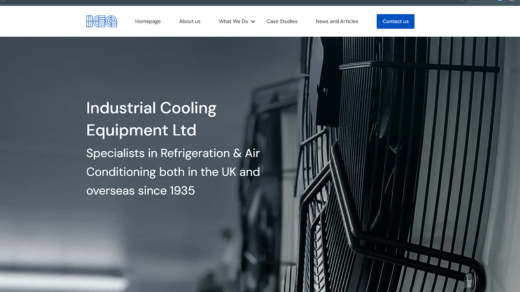Revolutionizing Efficiency: The Evolution and Importance of Industrial Cooling Equipment

In the vast and diverse world of industrial processes, maintaining optimal temperatures is critical for the efficiency, safety, and longevity of equipment and products. Industrial cooling equipment, a cornerstone of many sectors including manufacturing, data centers, food processing, and pharmaceuticals, plays a pivotal role in this regard. As technological advancements continue to drive forward innovation, the evolution of industrial cooling equipment stands out as a significant factor in enhancing operational efficiency and sustainability.
The Role of Industrial Cooling Equipment
Industrial cooling equipment is designed to remove excess heat from processes, machinery, and environments to ensure optimal operational conditions. This is crucial in preventing overheating, which can lead to equipment failure, reduced product quality, and unsafe working conditions. Cooling systems are vital in various industries:
- Manufacturing: Precision machining and heavy industrial operations generate significant heat. Effective cooling solutions prevent machinery from overheating, thereby extending equipment lifespan and maintaining product quality.
- Data Centers: With the exponential growth of digital data, data centers are the backbone of the modern economy. Efficient cooling systems are essential to manage the heat produced by servers, ensuring continuous operation and preventing data loss.
- Food Processing: Temperature control is crucial in food production to maintain product integrity, prevent spoilage, and comply with health regulations. Cooling equipment ensures that food products are stored and processed under optimal conditions.
- Pharmaceuticals: The production of pharmaceuticals requires strict temperature control to ensure the efficacy and safety of products. Cooling equipment is essential in maintaining the integrity of raw materials and finished products.
Advances in Cooling Technology
The landscape of industrial cooling equipment has evolved significantly over the years, driven by the need for higher efficiency, sustainability, and reliability. Key advancements include:
- Energy Efficiency: Modern cooling systems are designed to consume less energy, reducing operational costs and environmental impact. Technologies such as variable speed drives and advanced refrigerants contribute to improved energy efficiency.
- Sustainability: The push towards greener solutions has led to the development of cooling equipment that uses eco-friendly refrigerants with lower global warming potential (GWP). Additionally, innovations in heat recovery systems allow for the reuse of waste heat, further enhancing sustainability.
- Smart Technology: The integration of IoT (Internet of Things) and AI (Artificial Intelligence) in cooling systems enables real-time monitoring and predictive maintenance. This not only optimizes performance but also preempts potential failures, reducing downtime and maintenance costs.
- Compact Designs: Space-saving designs have become increasingly important, particularly in urban and constrained environments. Modern cooling equipment is now more compact without compromising on performance, making it easier to integrate into existing infrastructure.
Importance of Maintenance and Upgrades
Regular maintenance and timely upgrades of industrial cooling equipment are crucial for ensuring consistent performance and longevity. Routine inspections, cleaning, and servicing help in identifying potential issues before they escalate into major problems. Upgrading to newer, more efficient systems can result in significant cost savings and improved operational efficiency.
Future Trends
The future of industrial cooling equipment looks promising, with ongoing research and development focused on enhancing efficiency and sustainability. Emerging trends include the use of renewable energy sources for cooling, further integration of AI for autonomous system management, and the development of advanced materials that improve heat exchange efficiency.
Conclusion
Industrial cooling equipment is an indispensable component of modern industrial processes, ensuring optimal temperatures and enhancing operational efficiency across various sectors. As technology continues to advance, the evolution of cooling solutions promises even greater efficiency, sustainability, and reliability. Investing in state-of-the-art cooling equipment and maintaining it diligently is essential for industries looking to optimize their operations and stay competitive in an increasingly demanding marketplace.
Click the link below to find out more!
